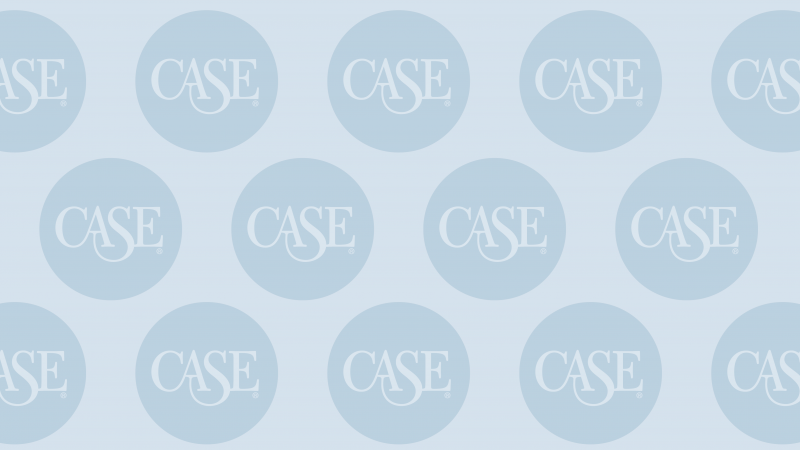Taking the Inclusive Path to Advancement
Like most development professionals, my journey into our profession was not by design. I entered the world of higher education 11 years ago through student affairs, having worked primarily in residence life, student conduct and the office of the vice president. These roles were instrumental in my understanding of a career in higher education as a meaningful profession that transforms lives for the better.
My experiences over seven years in student affairs also created a bridge to the advancement world. I entered development with significant transferable skills, as student affairs professionals are called upon to work with diverse and multiple constituent groups, troubleshoot complicated issues, think quickly on their feet and collaborate within and across units to maximize human capital and financial resources.
Still, the transition to development was eye-opening, and not just because my days are now spent reviewing spreadsheets and mining data. To my surprise, I found that one of the most significant differences between student affairs and the advancement profession is the lack of diversity, particularly in the number of racial and ethnic minorities in the field. As an African-American, gay man, I have noticed a lack of people who look like me at advancement conferences and the institutions where I have worked. Moreover, historically, many of the alumni we have engaged in development conversations were white, cisgender, straight men. Although our approaches to fundraising strategies are shifting to include more women, LGBT people and communities of color, there is much more we can do to reach out to and serve these populations and better understand their motivations as donors.
I am encouraged by the work of CASE and other associations and universities that are addressing this issue head on. Whether it is the creation of this newsletter, conferences specific to identity-based engagement and fundraising strategies, and affinity groups, or the establishment of initiatives to increase the pipeline in recruiting and retaining more diverse talent, these types of practices are helping us become a more inclusive profession. I am grateful to be at American University (AU), which has adopted an institution-wide Inclusive Excellence plan and has charged each division to develop its own with the larger plan in mind.
As co-chair for the inclusive excellence committee for the division of development and alumni relations at AU, I can say with sincerity that we are assessing diversity, equity and inclusion from all angles, including our day-to-day operations and hiring practices, as well as the areas of events, communications and constituent engagement, where we are implementing best practices to increase diversity. The committee will not only employ a mixed-methods approach to collecting feedback from advancement colleagues, but we will utilize the forthcoming AU strategic plan to ensure that our recommendations are in alignment with the president's broader vision for the future. We are in the infancy stages of this process, but it has proven to be a personally enriching professional development opportunity, one that I believe will benefit our division and the greater university, as well.
One of the most important things I have learned over my 11-year career in higher education is that each department's work intersects with so many areas within the larger institution; the more we, as alumni and development professionals, engage with our campus partners outside of our departments and division, the greater the likelihood of favorable outcomes for alumni engagement and development success, and for all of our constituents.
About the author(s)
Michael Bumbry has 12 years of experience in higher education administration including a career in both student affairs and advancement. He currently serves as the director of development at the Kogod School of Business at American University (AU). He is a major gift fundraiser focused on cultivating relationships with existing and potential donors resulting in solicitations and closure of gifts at $100K and above. He previously served in various development and student affairs roles at Johns Hopkins University, University of Chicago, Loyola University Chicago, Temple University, and North Carolina State University.
In addition to his full-time position at American, Bumbry serves as the fundraising and stewardship chair for the American College Personnel Association- College Student Educators International (ACPA) Foundation Board, co-chair of AU’s inclusive excellence committee for the development and alumni relations division, and is a member of the Elon University Leads Regional Campaign Committee in Washington, DC. He also recently served as a faculty for the CASE Advancement Institute.
Bumbry holds a bachelor's degree in broadcast communications from Elon University, a master's degree in higher education administration from North Carolina State University, and a doctorate in higher education administration from Loyola University Chicago.
